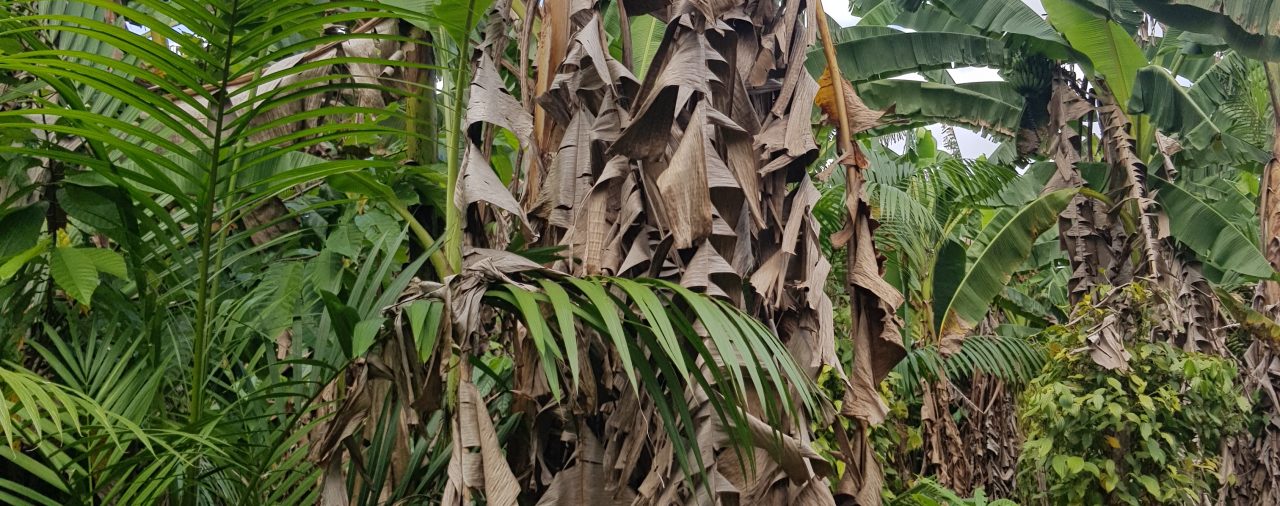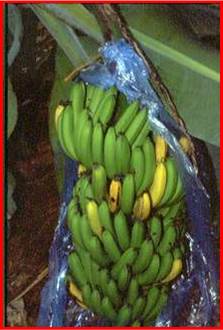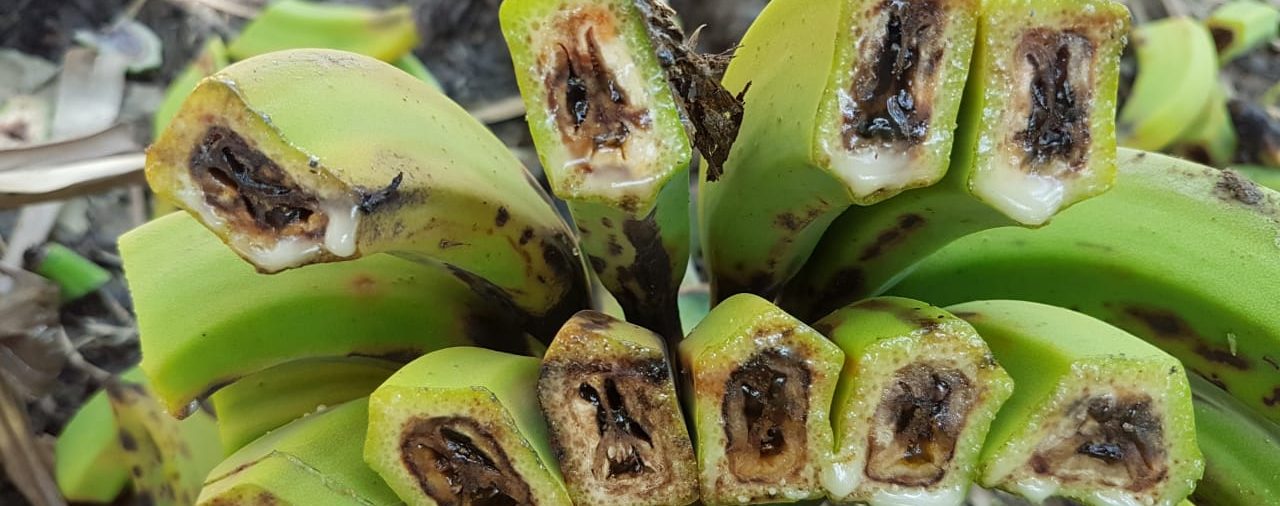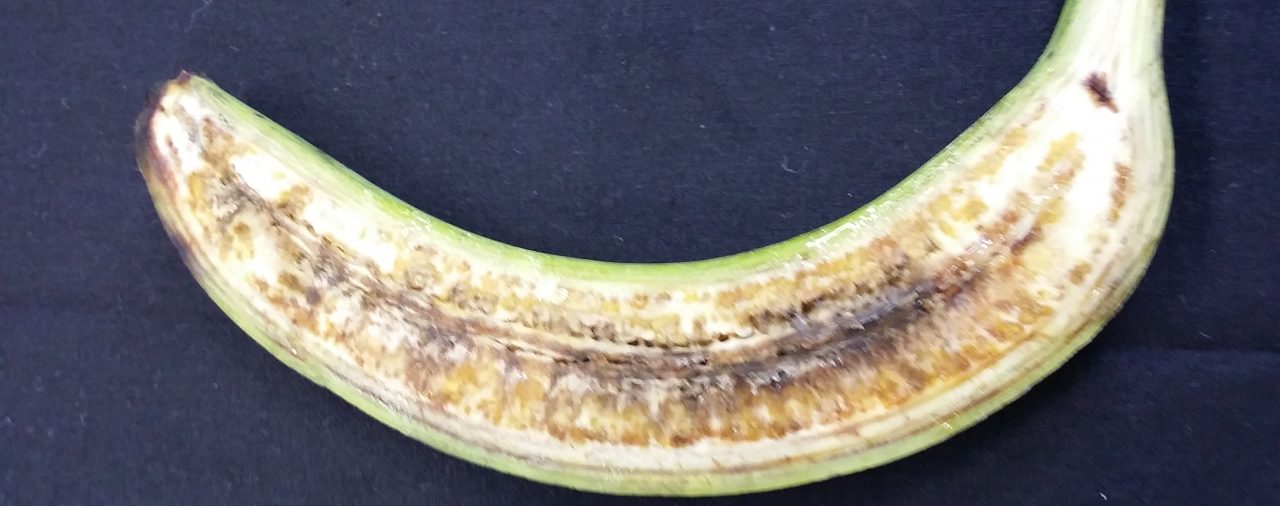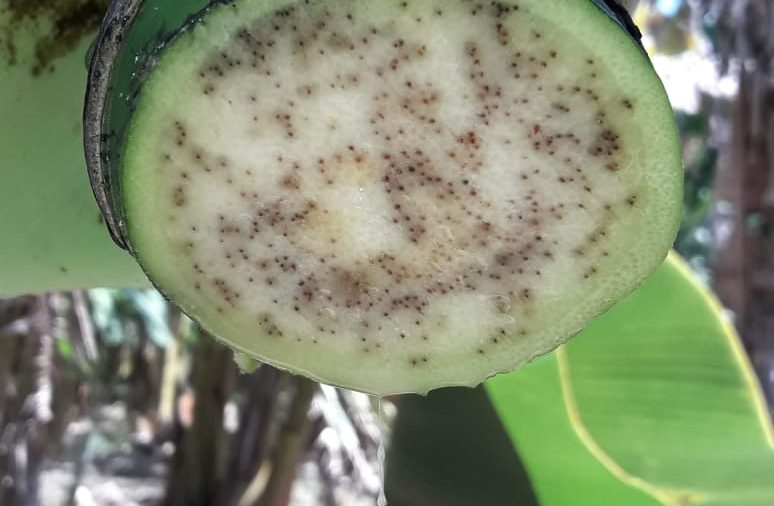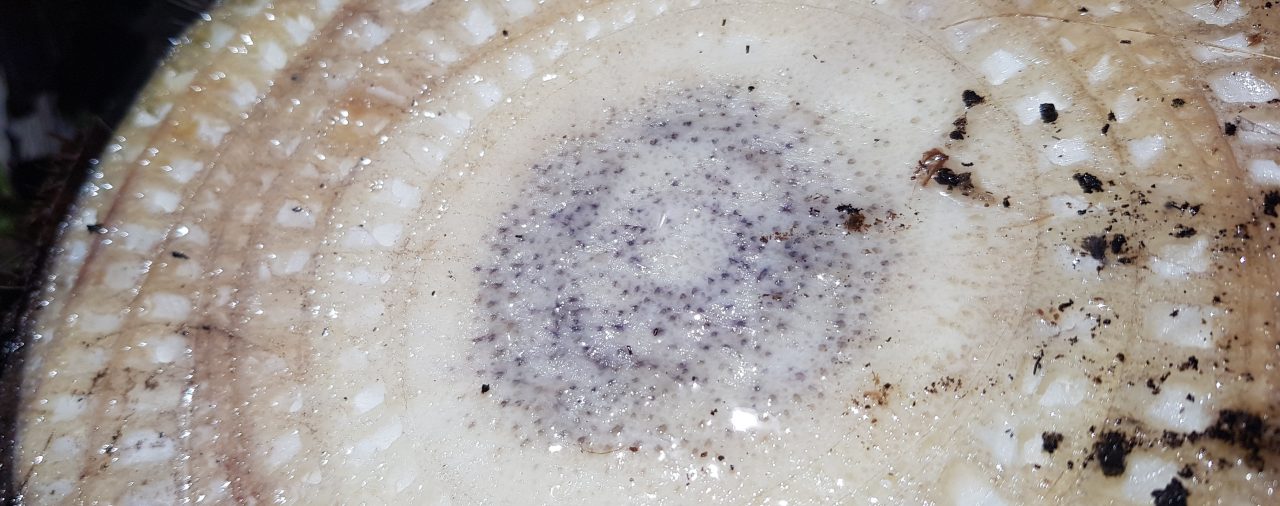A regular feature in Australian Bananas magazine, Under the Microscope profiles the industry’s emerging and exotic diseases. Sometimes you just need the facts, fast.
What is Moko Disease?
Moko is caused by a bacterium called Ralstonia solanacearum which belongs to a group of pathogens that cause bacterial wilts in banana. It is related to banana blood disease. When the disease occurs on cooking bananas of the ABB and BBB type it is called ‘Bugtok’.
What are the symptoms?
• Rapid yellowing, wilting and collapse of leaves (Fig 1)
• Wilting of small suckers
• Premature fruit ripening and splitting (Fig 2)
• Premature ripening fingers in an otherwise green bunch (Fig 3)
• Fruit pulp turns yellow to brown grey and results in a firm rot of the fruit pulp (Fig 4 & 5)
• Blackening and shriveling of flower buds
• Vascular tissue of the stalk shows brown discoloration when cut (Fig 6)
• Internal yellow to brown discoloration of the pseudostem (Fig 7)
How does it spread?
The Moko bacterium can be spread in infected plant material, fruit, soil, water, insects and pollinators. The pathogen can survive in the soil for more than a year. Heliconia species are a known host of Moko.
Where in the world is it found?
Moko disease originates from Latin America and is currently also found in the Philippines and in peninsular Malaysia. Australia is free of Moko disease.
What are we doing to protect our industry?
• Strict regulation concerning import of plant material
• Surveillance and validating our diagnostics ensuring that we can detect all the different strains causing Moko
• Increase awareness among industry stakeholders
What can I do to protect my farm?
• Use only disease-free planting material
• Check your farm frequently for new pests and unusual symptoms
• Maintain good biosecurity practices
Photos and text provided by Prof André Drenth and Dr Lilia Carvalhais, University of Queensland as part of project BA16005 Strengthening the banana industry diagnostic capacity. Photo 2 & 3 courtesy of Mauricio Guzmán and Ricardo Villalta, CORBANA, Costa Rica.

